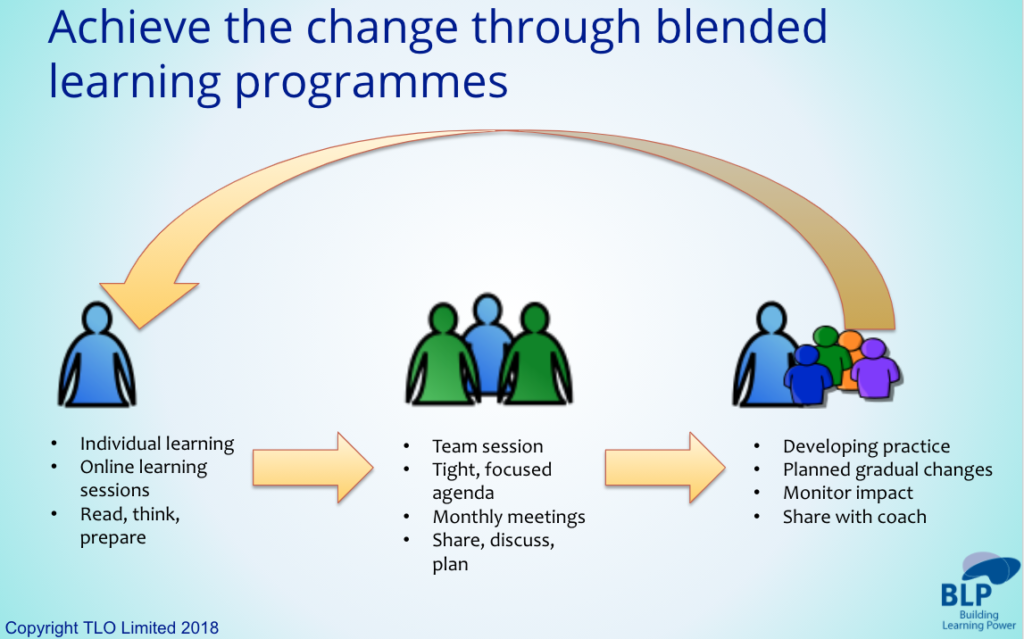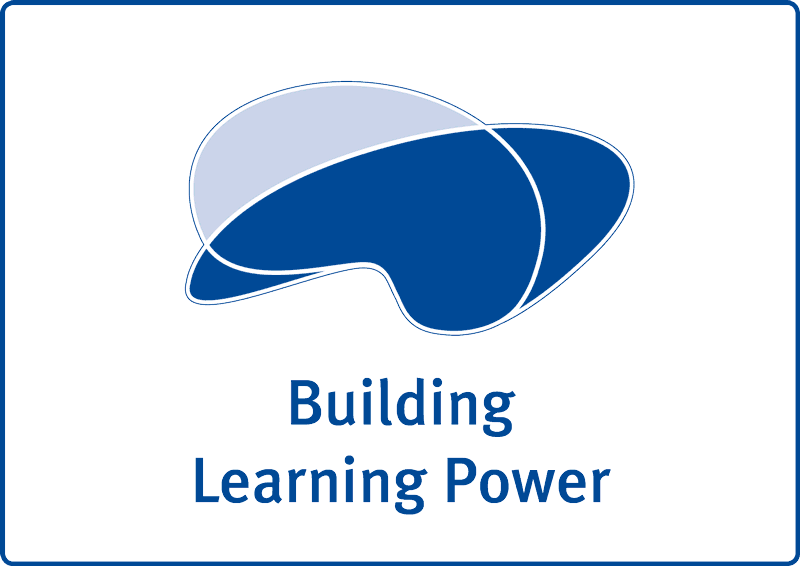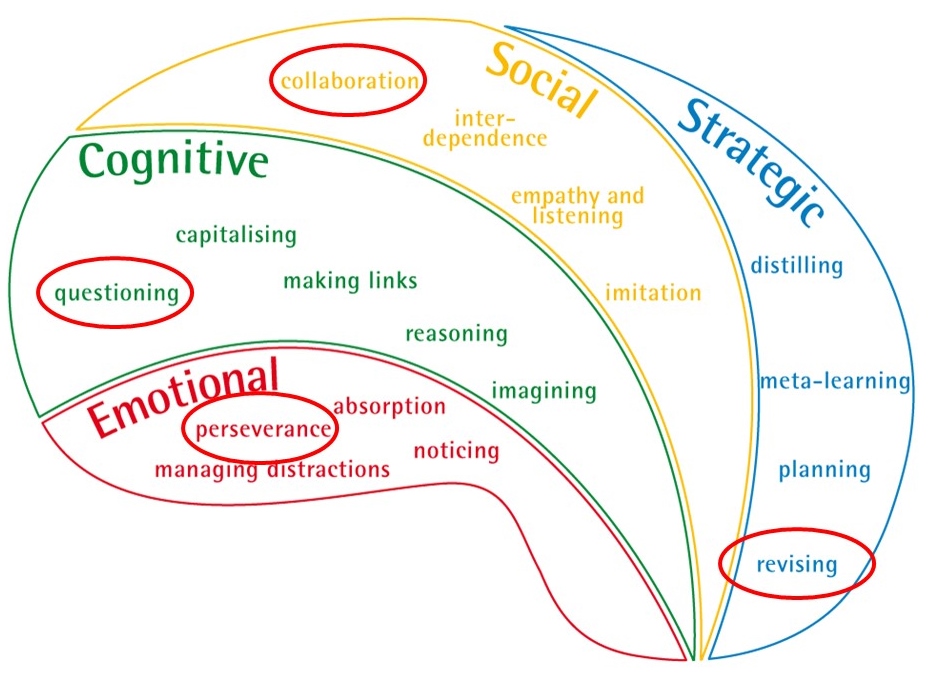Available in both primary and secondary school editions.
This first phase of the Building Better Learners programme helps schools and teachers to fashion learning friendly cultures and strengthen students’ positive learning behaviours.
A course with big ambitions…
…combining a rich research heritage from Carole Dweck, Mihalyi Csikszentmihalyi, Art Costa, Sir Ken Robinson, Dylan Wiliam, Chris Watkins, John Hattie and Guy Claxton, the course combines and unravels;
- The formative work of finding out about your students’ learning behaviours using the ‘Finding Learning Power’ resource.
- The practical work of shifting classroom culture to better accommodate learning behaviours, using 4 foundational behaviours to get you started
- The fine grained work of purposefully blending the use of learning behaviours into lesson design, again focusing on just four behaviours
- The blending work of gradually adding more of the original charted learning behaviours into the mix.
The anticipated results shown in the green cells outline of how the school’s players will have developed by the time you have finished this first stage course, while the blue cells offer the anticipated outcomes for each part of the journey. These include; discovering students learning behaviours, shifts in classroom cultures to support their growth, early shifts in lesson design accommodating learning behaviours, and the beginning of using a much broader range of learning behaviours across the curriculum.
The course and its big ambitions explained
A blended learning programme.
Playing the Learning Power Game’ is designed as a blended learning programme offering rich online content, meeting agendas for Professional Learning Teams and planning tools needed to keep classroom based enquiries on track; key features to help ensure schools achieve the desired outcomes.
Playing the Learning Power Game is not a how to do it manual.
The programme is a careful blend of:
- online learning sessions….that faithfully disseminate the researched content about how to build better learners
- professional learning team sessions ……actioned by the school that aim to provide sustained, meaningful assistance; learning with and from colleagues
- trying things out for yourselves in your classrooms……because “learning by doing” is integral to the development of expertise and expertise can’t be developed quickly. It can only be developed if you have ample opportunity for practice, reflection, and adjustment.
This trio of learning opportunities work together to help teachers replace long-standing habituated practices with more effective ones.
Starting tight and focused
Where to start?
The course introduces the holistic ideas of learning power and our experience suggests that it’s best to select one key disposition from each domain of learning; Questioning from the Cognitive domain, Collaboration from the Social domain Perseverance from the Emotional domain, and revising from the Strategic domain; these we know as the foundational four.
Why start with these four dispositions?
- Perseverance because teachers find that it’s the disposition to keep going, to remain engaged, to relish challenge and go for goals that’s most lacking in many students.
- Questioning because this is the driver of learning; wanting to know why, how, if, when and so forth connects us with learning.
- Collaboration because ‘working together’ is a familiar classroom activity and yet few students know how best to learn profitably together.
- Revising because learning is a process and like any process it needs managing and adapting to work really well. This foundational set of four offer the soil in which other dispositions can take root more easily.
To enable these dispositions to flourish the course also introduces the four essential aspects of classroom culture: how teachers relate to students to support learning; how teachers talk to students to enable learning; how teachers construct lessons to stretch learning and how teachers celebrate to nurture students’ learning power.
“Instead of simply dishing out more good advice to students-as-consumers, classrooms are becoming places of day-by-day knowledge generation about learning”
Broadening the effort and impact
Having worked on introducing students to the foundational four learning behaviours, teachers are later encouraged to branch out and take an exploratory look at building a couple of the next 8 learning behaviours which involves making more sophisticated shifts in teaching.
Some of the learning behaviours are more critical for success in some subjects than others, while others are critical for success across the curriculum.
Teachers are encouraged to widen their reach by, for example…
- …looking at those behaviours that apply more generally and are linked to students’ attention...perseverance, noticing, listening, revising. These alone may account for any under performance.
- looking more deeply into questioning. More curious students are motivated to explore and engage, whereas a student who is lacking curiosity has little enthusiasm for learning.
- remembering that it’s well-researched that students with well-developed meta-cognitive skills attain more highly than those who don’t. So maybe think hard about exploring meta learning.
- selecting two or three behaviours that seem most appropriate to work on.
Support for senior leaders and learning champions
The ‘Playing the Learning Power Game‘ course is packed full of interesting ideas for teachers but taking the course on board and making it work throws up some vital leadership questions. These include not only the time and effort needed by staff to make it work, but also changes in the school’s operations that will need to be managed.
This accompanying resource takes a leadership perspective and offers a view of the strategic concerns that will arise when the school takes on ‘Playing the Learning Power Game‘. It offers questions, think pieces, frameworks, slide decks and diagrams to help leaders;
- feel reassured about the purpose, benefits and frameworks of learning power
- explore important leadership roles when taking on the development of Learning Power through the school
- maintain momentum into the future
- understand ways forward beyond this initial stages
Costs and benefits.
The ‘Playing the Learning Power Game forms the first essential part of the whole Building Better Learners programme and will be of benefit to a school for years to come.
.
Analysing the costs and benefits of staff development involves identifying as many of the costs as possible and weighing these against the benefits that will mount up over time. The purpose is to be able to make judgements about value for money: that is to ascertain whether staff development has been an investment with identifiable benefits, or a cost which represents an inefficient use of resources.
Costs. The majority are relatively easy to calculate in financial terms. They include course fees, replacement costs, travel, manager time, disruption to teaching, staff meeting time/directed time…and so on.
Benefits. Here we’ve considered the benefits of staff development at three levels because they mount up over time: staff learning, changes in practice on the job, benefits for students.The full benefits of this programme will take time to emerge but describing them enables you to value the benefits of staff development.







Comments are closed.